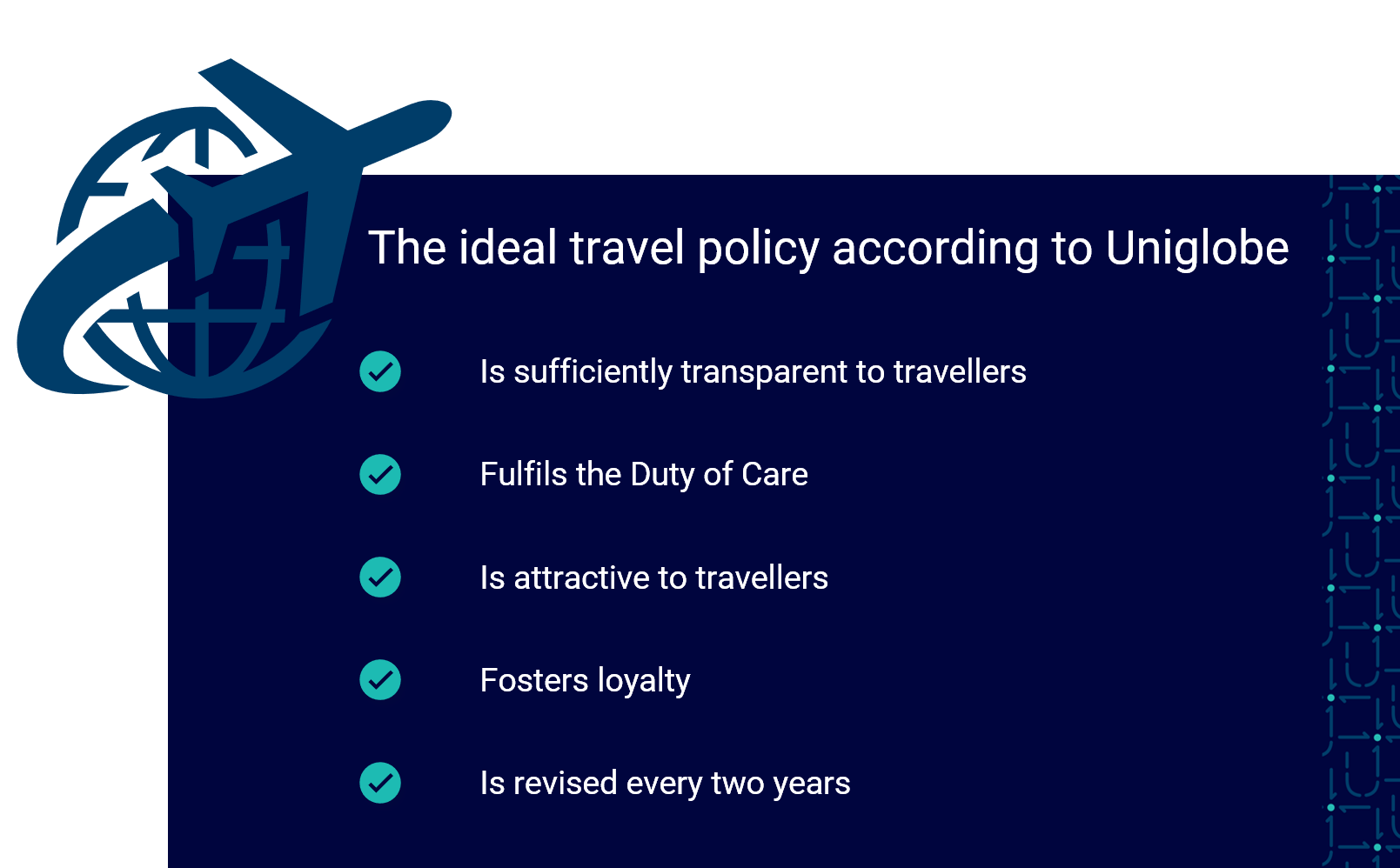Not without risk
The absence or non-observance of a travel policy is not devoid of risk. Giving business travellers a free hand gives them space to ignore the organisation’s travel policy. Often this is not immediately detected until it’s too late and the costs have been made. In large organisations there are always a number of employees who like to test the limits. For instance, some travellers will purposely choose a flight with a stopover because in such cases company policy allows them to fly business class due to the longer travel time.






